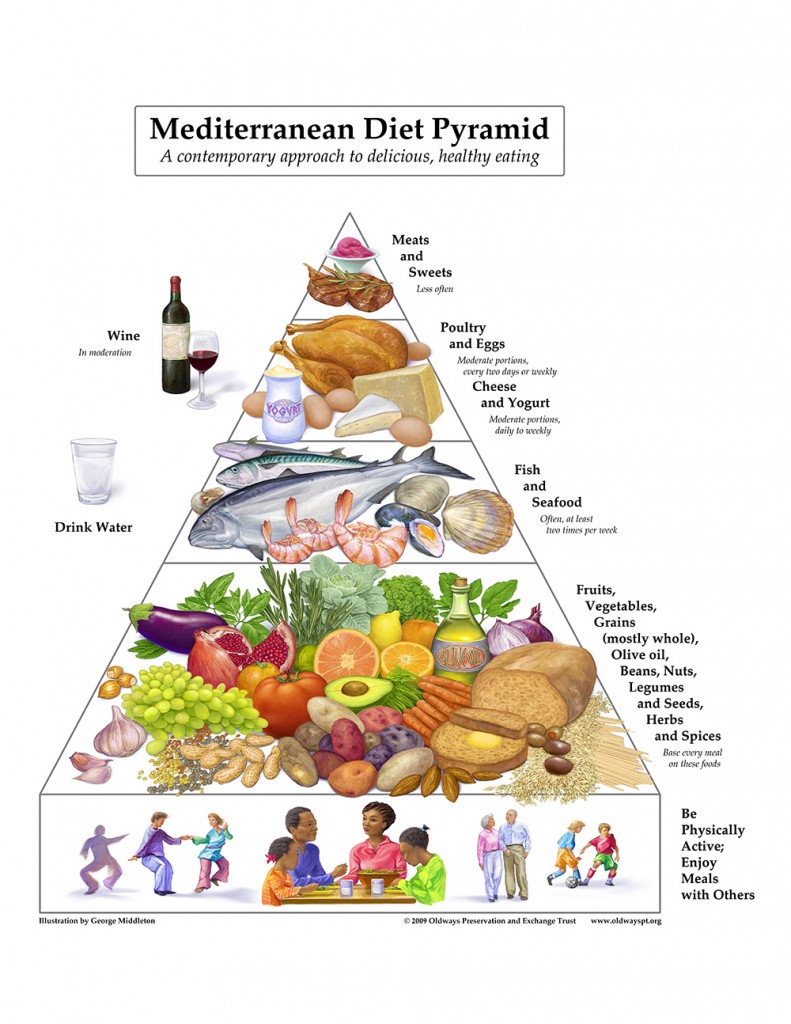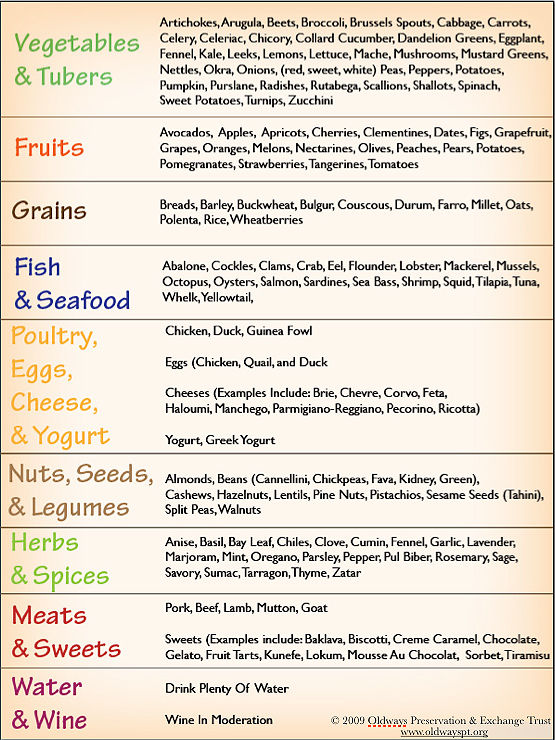Guest Post by Vandana Bhide, MD
Greeks who live on the Island of Crete have significantly less heart disease and cancer than Americans. Research studies suggest it is the Mediterranean diet that may give Cretans their health advantage.
The Mediterranean diet is rich in fruits, vegetables, whole grains, fish and nuts such as almonds and walnuts. It has been found to be associated with less risk of recurrent heart attacks than people who followed the traditional low fat, low cholesterol Step I American Heart Association diet.
The Mediterranean diet is low in red meat and hydrogenated fats found in margarine and processed food. Instead, monounsaturated oils such as olive oil, canola oil and peanut oil are used. The diet does recommend limiting fat in general in people trying to lose weight.
The Mediterranean diet also includes up to one glass of red wine daily for women and up to two glasses per day in men. However, if you do not already drink red wine, you should not start drinking just to get the benefits to the heart. Remember that alcohol is addictive, and that the health benefits are lost when more than recommended amounts of alcohol is consumed.
You may be able to get the same health benefits by drinking purple grape juice. Purple grapes contain Oligomeric Proantho Cyannidins (OPCs) which neutralize free radicals in the body. This may help prevent cancer and heart disease.
Dairy, including yogurt, is consumed by Greeks in the Mediterranean. However, like most healthy diets, sweets and processed foods (including tropical oils) are limited.
Here are some common and not so common foods of the Mediterranean Diet Pyramid
—
Barbara’s Note
We would love to hear from you. What are your favorite foods from the Mediterranean Diet? Share your healthy and simple recipes with us.
Find more healthy eating posts here.
—
Thanks to Oldways for granting us permission to use their Mediterranean Diet Food Pyramid and the List of Common and Uncommon Foods.
—
About the author:
Dr. Vandana Bhide is a Board Certified Internist and Pediatrician in private practice in St. Augustine, Florida. She is a volunteer physician for a local domestic violence shelter, a clinic for indigent patients and organizations which provides substance abuse counseling/prevention and mentoring programs for children. Dr. Bhide has given informational lectures to the community regarding her special interests in fitness, nutrition, women’s health, parenting issues and alternative and complementary medicine. She is a member of the American College of Physicians, the American Academy of Pediatrics, the Florida Medical Association and the National Association of Medical Communicators.
For more on Dr. Bhide, please visit her blog, VeeMD.


